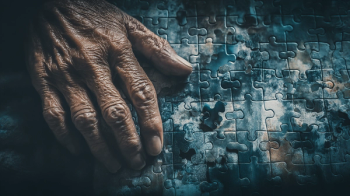
- Psychiatric Times Vol 18 No 1
- Volume 18
- Issue 1
The Elderly May Have Advantage in Natural Disasters
New studies show that the elderly may be more resilient in the face of natural disasters than younger victims. Preparing older patients is key to improving their coping skills.
Researchers from the University of Southern California (USC) and Indiana University have found that elderly earthquake survivors may be more psychologically resilient than younger adults in the wake of natural disasters, a finding that may point to the need for more concrete pre- and post-quake services. In the study (1999), Bob G. Knight, Ph.D., and Margaret Gatz, Ph.D., looked at several generations of earthquake survivors and concluded that the degree of prior disaster experience versus chronological age was a predictor of their post-earthquake psychological functioning. The more experience they had, the less likely they were to be depressed.
One hundred sixty-six adults ranging in age from 30 to 102 were interviewed following the 1994 Northridge, Calif., earthquake. Longitudinal depression data for the same adults were available before and after the earthquake and came from a regularly scheduled unrelated survey of multi-generational families. The USC Longitudinal Study of Generations (LSOG) began in 1971 and was designed to better understand values, effects and interpersonal relationships between family members of different generations; survey questions were broadened in 1985 to look for depression.
USC co-author Gatz said that when the Northridge earthquake hit, she and her colleagues decided that the LSOG adults were ideal interview candidates to query about their reactions to the disaster since researchers already knew so much about them. "We all went through a strong personal experience and realized that this was an important event," Gatz told Psychiatric Times.
Interestingly, researchers did not observe any protective effects of prior experience on ruminative thoughts about the earthquake and/or a heightened startle response to normal vibrations. Rather, these phenomena appeared to be linked to the degree of personal damage experienced by disaster survivors.In addition, "The level of depressive symptoms in people after Northridge was almost entirely predicted by their level [of depression] before the earthquake," Gatz said. The availability of longitudinal data gave researchers important baseline data and, consequently, a clearer sense of how psychological functioning may or may not be affected by earthquakes.
"I think it gives a different expectation about how older adults are going to respond," Knight told PT. "The first service programs oriented to adults were expecting them to have a more disabling response to disaster. Our research suggests that, on average, although they have a response, they probably won't be the most upset people you're dealing with."
Knight said study findings indicate that those between the ages of 30 and 50 may be the most likely to need psychological services. He added that study results indicate a greater need for concrete services for the elderly, such as disaster preparedness, as opposed to psychological counseling.
Literature on the psychological impact of natural disasters has been mixed. Some studies have posited an increased incidence of distress among older survivors, based on the assumption that the elderly are more likely to be exposed to disaster-related danger and to have fewer health, financial and social resources. Others have found that older adults who have survived previous disasters fare better psychologically in subsequent disasters than inexperienced counterparts. That prior experience, researchers believe, may effectively inoculate elders against the potentially debilitating depression and anxiety that can set in following the injury and/or loss of personal property which can result from natural disaster.
The same longitudinal study yielded a second report, which looked specifically at cross-generational differences in disaster preparedness. Gatz and Heller (1995) found that elderly individuals took far fewer steps to increase their level of preparedness than did younger family members in the aftermath of an earthquake. The study suggests the significant disparity between generations may reflect a certain fatalism among elderly quake survivors. For example, they may think that if a heavy piece of furniture has not toppled over and crushed them in the five previous tremors, chances are that there is little reason to move it or have it bolted to the wall. Gatz believes that the results emphasize the need to make preparedness relevant to elders and suggests that focus groups may provide a valuable way for elders to talk about topics that are personally meaningful, as well as realistic, vis--vis earthquake preparedness. Gatz speculated, "Can you imagine how many brochures someone living in Southern California for 30 to 40 years has received on earthquake preparedness and thrown away?"
While encouraging, results from the Northridge study may not be universally helpful. For example, the frail elderly, many of whom require institutional care, remain especially vulnerable in disaster situations. According to a report issued in 1999 by the federal Center for Mental Health Services in collaboration with the National Council on Aging, over 90% of nursing home residents carry at least one psychiatric diagnosis and/or one behavioral problem. According to author William Oriol, the additional stress of a disaster will likely tax the already limited psychological and cognitive capacities of this population. (A copy of the report, which includes detailed recommendations for professionals, is available by calling [800]789-2647 or contacting <
Even in facilities with exemplary preparedness, "transfer trauma" is a common phenomenon when institutionalized elderly are evacuated from familiar surroundings, but it can be minimized if providers work hard to re-establish orienting routines and ties with caregivers, relatives and friends, according to a 1983 report by the National Institute of Mental Health.
J. Randy Mervis, M.D., a geropsychiatrist at the Sepulveda Center for Ambulatory Care (part of the greater Los Angeles Veterans Affairs Health Care System), told PT that the Northridge earthquake was psychologically overwhelming to many of his patients. The experience of being evacuated from the badly damaged building into its parking lot significantly compounded the sense of fear and disorientation for these individuals, most of whom were non-ambulatory. In addition, many of Mervis' patients were already struggling with age-related cognitive problems. "We all talk about anxiety," he said. "But when the ground you're standing on is shaking and you hear things crashing all around you, you have the true fear that your life may be ending."
Mervis, who also volunteers in the American Red Cross' Disaster Mental Health Services, said his experience working with disaster survivors has exposed him to a variety of coping styles and capacities. "I think with the elderly, generally they've had multiple losses already [in terms of] social stature, physical health, ability to work, the loss of loved ones," he said. Disaster "is just one more insult, and sometimes it's the final insult" when it comes to an individual's ability to cope.
Betsy Gard, Ph.D., founder of the Disaster Mental Health Response Team in Georgia, believes that, in general, elders' response to disaster is similar to that of younger adults. In contrast, "You do get a subset where the idea of leaving homes and possessions is extremely traumatic and they take an approach of 'I don't care, I've weathered many things in my life and I'm not leaving.'" Gard told PT that the prospect of not being able to take a beloved pet with them to an emergency shelter can be especially upsetting to some elders, particularly to those living alone, and can solidify an elder's refusal to leave their home. She added that collaborative efforts between disaster relief organizations and area veterinarians to provide short-term shelter for pets is helping to allay such concerns.
Both Gard and Mervis believe it is ill-advised to generalize elders' response to disaster. For more fragile individuals, enduring a disaster is akin to having "everything thrown up in the air like a deck of cards," Gard said.
On the other hand, disaster may mobilize internal resources, enabling survivors not only to begin to put their own lives back together but also to offer help to others around them. Mervis recalls interviewing a Santa Barbara, Calif., widow in her 60s who survived a flood in 1995 by grabbing the garage door of her home; her husband was swept away by a tidal wave that came crashing through the couple's window as he read the newspaper.
"She was quite stoic about it," said Mervis, who learned during their one-hour conversation that the widow and her mother had been concentration camp inmates during the Holocaust. "Her main concern was about how it would affect her older mother. I guess I was in awe of how well she had handled it. She was obviously very upset and traumatized, but she was able to continue."
References:
References
1.
Gatz M, Heller K (1995), Age differences and intergenerational similarity in earthquake preparation. Presented at the annual meeting of the Gerontological Society of America, November.
2.
Knight B, Gatz M (1999), Age and emotional response to the Northridge earthquake: A longitudinal analysis. Presented at the annual meeting of the Gerontological Society of America, November.
3.
Oriol W (1999), Psychosocial Issues for Older Adults in Disasters. Washington, D.C.: Emergency Services and Disaster Relief Branch, Center for Mental Health Services, Substance Abuse and Mental Health Services Administration.
Articles in this issue
about 25 years ago
Lawsuit Raises Questions About APA Liability Insurance Programabout 25 years ago
Patient Privacy Battle Hinges on Competing Interestsabout 25 years ago
In Memoriamabout 25 years ago
From Our Readersabout 25 years ago
From Our Readersabout 25 years ago
Is ECT Appropriate in Old-Old Patients?about 25 years ago
Memory and Mood Are Focus of Geriatric Research Effortsabout 25 years ago
Overview of Elder Maltreatmentabout 25 years ago
Novel Agents and Investigations Abroadabout 25 years ago
Commentary: The Doctor's Dilemma: A Conflict of LoyaltiesNewsletter
Receive trusted psychiatric news, expert analysis, and clinical insights — subscribe today to support your practice and your patients.







